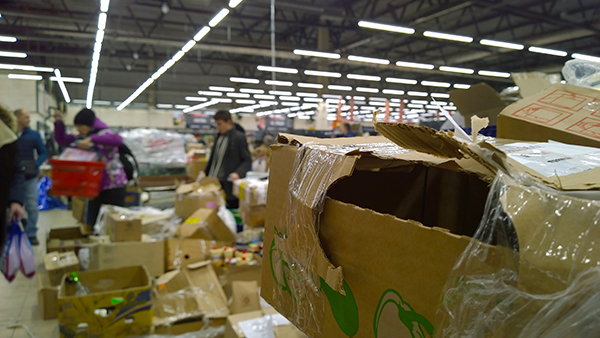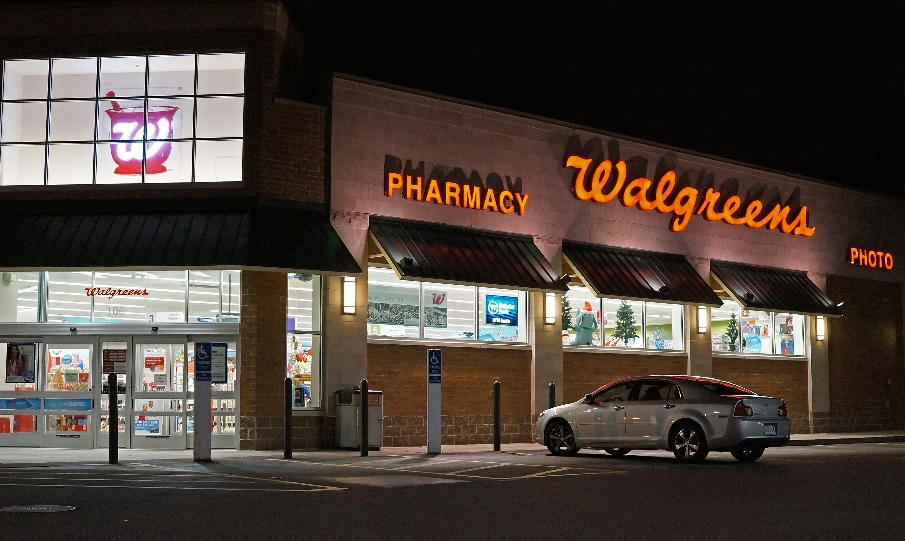Mexican drug cartels are behind surge in organized retail crime across the US
07/25/2023 / By Arsenio Toledo

Mexican drug cartels are trying to expand their global criminal empires. According to reports, they are behind the recent surge in organized retail crime (ORC) in the United States.
ORC is the large-scale theft of merchandise in retail outlets with the intent to resell the items for financial gain. Retail crime has become a very serious problem for major businesses in the United States in recent months. (Retail: Major retailers will keep shutting down their stores until organized retail crime gets under control.)
Eight out of every 10 retailers in the U.S. have reported witnessing an increase in incidents of violence and aggression in their stores this past year. The National Retail Federation warned that external theft, including organized retail crime, was responsible for nearly $100 billion worth of retail losses, or shrinkage, for the past three years, with an average 26.5 percent year-over-year increase.
In addition to this direct impact on retail companies, ORC is also responsible for about $125.7 billion in lost economic activity, $14.9 billion in lost federal, state and local tax revenue and $39.2 billion in lost wages, which comes from companies being forced to shut down retail locations due to the rise in crime. These closures have even resulted in nearly 700,000 job losses.
Organized retail crime is a $70B a year enterprise
Mexican cartels are mostly known for facilitating the greatest human smuggling operation ever recorded, with thousands of immigrants being able to illegally cross the U.S.-Mexico border. They are also known for causing the U.S. fentanyl epidemic.

Now, they have a hand in the rise in organized retail crime and are responsible for targeting everything from big box stores and luxury retail brands to small- and medium-sized businesses, with the goal of reselling the stolen goods online and laundering the profits through Chinese brokers.
“It’s a $70 billion a year enterprise – organized retail crime,” said Eric DeLaune, special agent in charge at the Department of Homeland Security‘s Homeland Security Investigations (HSI), one of the main law enforcement components of U.S. Immigration and Customs Enforcement.
According to the HSI, organized retail crime differs from regular store thefts due to the level of complexity associated with them.
Syndicates who run ORC schemes usually consist of at least three teams: the “boosters” who steal goods, the “cleaners” who disguise the origins of stolen merchandise and the “fencers” who resell the products, either through brick-and-mortar fronts and major e-commerce websites.
Some syndicates, including Mexican cartels, even use professional money launderers who then funnel the illicit profits back to the cartels in the form of clean cash.
Arkansas Attorney General Tim Griffin, who warned about how the state is grappling with organized crime at a Fortune 500 company level to mom-and-pop stores in small towns, noted how a culture of being lenient on crime has helped facilitate the rise in retail thefts.
“Let me tell you the difficult thing to change and establish, and that is culture,” he said. “It’s all over the country, but particularly in some of our cities – when you have a culture that you can violate the law, steal, burglarize, do whatever you want and the feds and the state and everybody else will just sit around and watch, you’ve got a problem. And it goes way, way beyond organized retail crime.”
“[ORC] impacts jobs. It impacts us because we’re paying for it,” he added. “We’re either paying for it with our prices, or we’re paying for it as you heard before – when the companies, the businesses go out and we have less choice in our communities.”
DeLaune noted that the cartels have “become emboldened” by these soft-on-crime approaches and have begun conducting their operations against retailers in broad daylight.
Griffin warned that being lax in enforcing laws against ORC could lead to gangs like the Mexican cartels operating in the U.S. to further expand their operations to include many other kinds of crimes.
“When you send a signal to them that you’re going to let them get away with the organized retail crime, they see that as an open door to just about everything else they want to do because they see a culture that puts up with criminal activity,” he warned.
Learn more about Mexican organized crime at DrugCartels.news.
Watch this episode of the “Rudyk Report” discussing the surge in retail theft in the United States.
This video is from the Rudyk Report channel on Brighteon.com.
More related stories:
Target to spend $5 billion on its stores to prevent them from shutting down.
Grocery stores hiring armed security teams to ward off rising thefts.
Sources include:
Submit a correction >>
Tagged Under:
anarchy, big government, Bubble, chaos, Collapse, conspiracy, corruption, crime, criminals, debt collapse, economic riot, finance riot, market crash, Mexican Cartels, Mexico, money supply, national security, organized retail crime, Retail, retail theft, risk, syndicates
This article may contain statements that reflect the opinion of the author
RECENT NEWS & ARTICLES
COPYRIGHT © 2017 COLLAPSE.NEWS
All content posted on this site is protected under Free Speech. Collapse.news is not responsible for content written by contributing authors. The information on this site is provided for educational and entertainment purposes only. It is not intended as a substitute for professional advice of any kind. Collapse.news assumes no responsibility for the use or misuse of this material. All trademarks, registered trademarks and service marks mentioned on this site are the property of their respective owners.




















